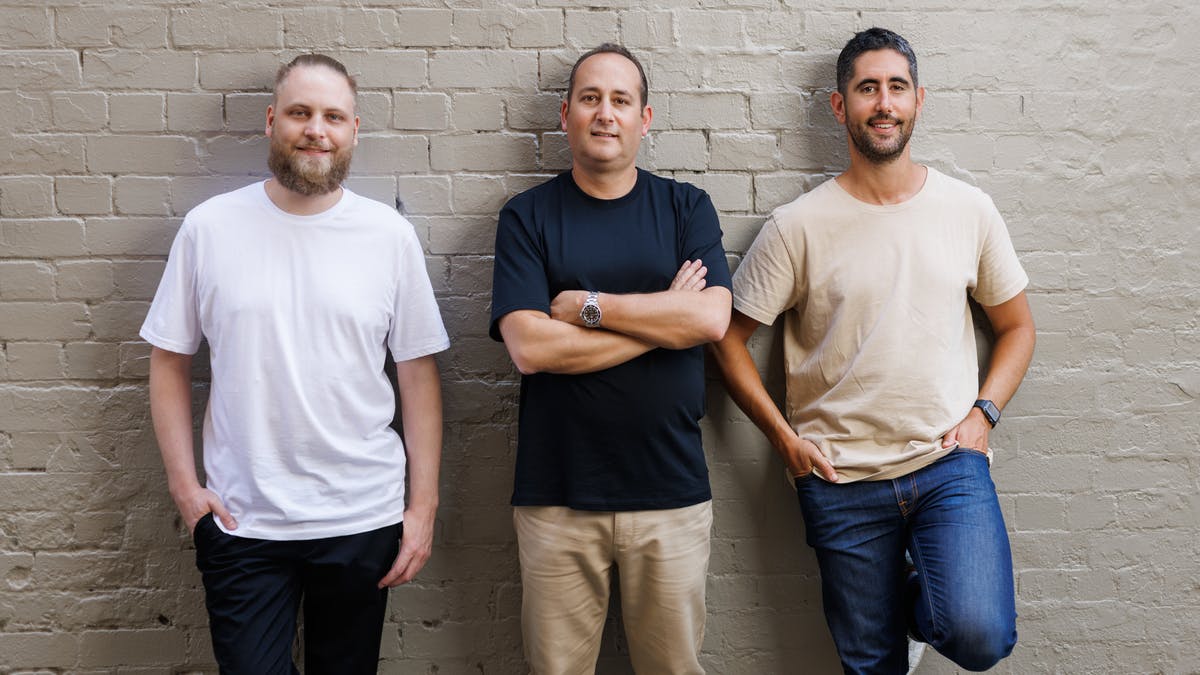You wouldn’t rush into a relationship with someone who doesn’t share your values. Similarly, it’s crucial that any business partnership starts with everyone on the same page.
Business partnerships form for a variety of reasons and like any relationship, there’s no magic formula for success.
I’ve been fortunate to have had some extremely productive alliances and for me, the key has been to work with people with whom I have aligned values, but different skill sets.
Find your common ground
A classic example is the three-way partnership behind my current venture, FoodByUs. Gary Munitz, Tim Chandler and I previously worked together and found we had a lot in common. We enjoy working hard, we’re incredibly resilient, and none of us is easily daunted by challenges. Most importantly: we trust one another.
We also align in wanting to look at what’s problematic and make it better. None of us could have found a business purely based on mass adoption, which requires working out later how to make it into something that’s actually commercial.
Since we first met, we have wanted to build a real business with tangible outcomes that benefit real people, with a sustainable revenue model from day one.
Viva la skills differences
So we’re sympatico on the fundamentals, trust and work ethic. But these count for nothing if you’re all good at the exact same thing. Equally important to being aligned on values is that you need to be different in your skillset.
The differences we each bring to the table and how we have intertwined these to create a business model is a key strength of the partnership. Our business is an online marketplace that connects restaurants and cafes with thousands of suppliers across food, alcohol and general hospitality items.
A deep understanding of technology and backend development is critical to our business and while I can’t code, Tim is a brilliant developer and technical founder who takes the lead on anything related to this.
My strength is in building teams and leading a business. Gary, who previously cofounded Menulog, is a bit of both a technical background but also commercial experience. Across the three of us, the value-add and therefore tasks to lead on, tend to split fairly naturally. That means we all get to add our passion as founders, with minimal stepping on each other’s toes.
It was a similar story at another business I co-founded, Flipsters. My business partner was an industrial designer. I can’t design shoes, so he was often the one going to China, dealing with factories, material selection and manufacturing techniques. Meanwhile, I was running sales, marketing, distribution channels and relationship management here.
Once again our skills were complementary, and our ability to trust one another and clearly define our roles meant that despite not often being in the same country, we grew the business to 16 countries internationally and successfully exited in 2014. Tim, Gary and I focus mostly on our strengths but also make core decisions together – such as which investors to accept in our share registry.
These conversations are often values-driven. If we weren’t aligned on the fundamentals, cracks would open and only continue to grow with time and pressure.
I’ve also witnessed situations in the past where fundamental moral differences have led key staff to leave. Situations like that can usually be averted or resolved within companies that have strong, resolved foundations.
R-E-S-P-E-C-T
Another big piece of the jigsaw, very much related to getting the values alignment right, has been that we have absolute respect for each other and the team we’ve built around us.
It has always been a goal for the three of us to step back from day-to-day decision-making, and so we’re absolutely empowered to call each other out on it. With a team of 60-plus and still growing, that’s really important.
We want the team to take ownership, drive whatever initiative or experience it happens to be, and build experience. As a business, you can’t scale unless you empower people to step up and we’re all on board with that.
The key to approaching the types of conversations where you need to challenge someone’s behaviour is to have a constructive mindset rather than a judgemental one. Coming from a position of genuinely wanting to help the business, and having data to back it up. Then it’s on the recipient of that kind of information to respectfully listen and act.
That works well for us because I don’t think any of the three of us have big egos. A message from each other, or from our staff, that maybe this deal is going to work better if I’m not in the room, I can receive that message and step back.
At the end of the day, it’s about building and maintaining relationships. As with personal ties, any business alliance has the best chance to succeed with solid foundations, Sympatico values, mutual respect and hard work. Once your leadership is in lock-step, the business can really thrive no matter what the challenge.
Keep up to date with our stories on LinkedIn, Twitter, Facebook and Instagram.

